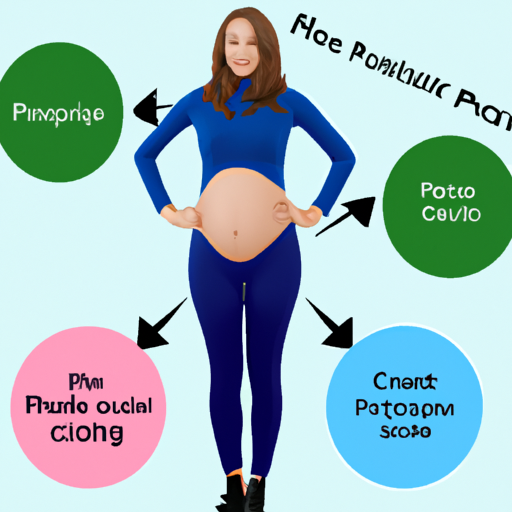Uncategorized
How Does PCOS Affect Belly Appearance?
Polycystic Ovary Syndrome (PCOS) and the PCOS Belly
PCOS affects many women of childbearing age, with one of its common symptoms being abdominal weight gain, which is sometimes referred to as the PCOS belly. This article will provide information on what PCOS is, what a PCOS belly looks like, how to know if you have a PCOS belly, the causes and risk factors, and what you can do about it. This includes exercises for PCOS belly, PCOS diet, and more.
What is PCOS?
PCOS is a hormonal disorder characterized by small cysts on the ovaries and elevated androgen (male) hormones. Women with PCOS experience abnormally high male hormones, which prevents egg cells from maturing properly, resulting in cysts. Not all women with PCOS have ovarian cysts, so watch out for other symptoms like facial hair, abnormal or irregular periods, acne, male pattern baldness or thinning hair, skin tags, and weight gain, usually in the lower abdominal area.
How do you know if you have a PCOS belly?
There’s no specific test to diagnose PCOS, so your doctor will make an assessment based on a waist-to-hip ratio of >0.87, a discussion of your menstrual history, dietary habits, lifestyle, and genetics, a blood test to determine if you have high male hormones, and a pelvic ultrasound to diagnose polycystic ovaries.
What is a PCOS belly, and what causes it?
Women with PCOS tend to have higher fat deposits in the abdominal area, independent of their body mass index. Elevated male hormones in women are what causes PCOS belly. Several other factors may play a role in the big and bloated stomach. This includes insulin resistance, genetics, hormonal imbalance, metabolism defects, and inflammation. A PCOS belly involves visceral fat accumulation in the lower abdomen and typically feels hard to touch.
Risks of PCOS belly and related weight gain
Abdominal fat is considered to be the most dangerous, putting you at a greater risk of developing serious health problems, including heart disease, high blood pressure, type 2 diabetes, and liver problems. Other risks of PCOS belly include subfertility, endometrial cancer, and sleep apnea.
How can I get rid of my PCOS belly?
Losing a PCOS belly is important for alleviating the symptoms and health problems associated with PCOS. A nutritious and well-balanced diet is essential to managing a PCOS belly. While there is no ‘correct’ diet for the management of PCOS, in general, a diet should look at reducing insulin resistance and inflammation to reduce belly fat and weight loss. Exercise is also important, including both aerobic and weight/resistance training. Getting enough sleep and managing stress are also crucial.
Exercises for PCOS belly
Some great exercises include high-intensity activities such as HIIT, strength-training exercises such as Pilates and weightlifting, yoga, walking, and sports such as hockey and tennis. Women who want to maintain their health and current weight should do 150 minutes per week of moderate-intensity activity OR 75 minutes per week of vigorous activity OR a combination. For women who need to improve their health and wish to lose weight, it is suggested to do 300 minutes per week of moderate-intensity activity OR 150 minutes per week of vigorous activity, OR a combination.
PCOS diet
Eating whole foods, more complex carbs while limiting simple sugars, enough healthy fats, cutting dairy products, avoiding processed foods, eating enough protein & fiber, drinking a lot of fluids, avoiding or limiting alcohol consumption, including probiotic and prebiotic foods, reducing caffeine intake, and eating fermented foods to promote gut health and weight management are all important for a PCOS diet. Mindful eating is also crucial.

 Skip to content
Skip to content


